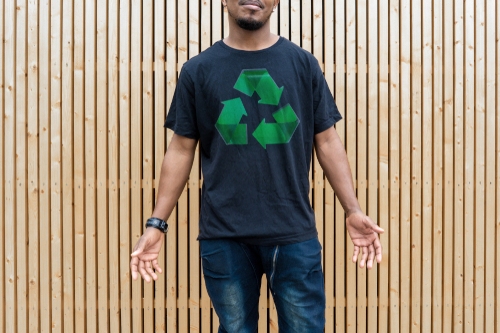

Closed loop
According to a McKinsey & Co. report, a fully closed loop apparel recycling system in the United States may have a total holistic impact of US$50 billion to $70 billion (based on economic, environmental, and social advantages).
The report, ‘Closing the Loop: Increasing Fashion Circularity in California,’ which was created in collaboration with fashion brands Allbirds, Gap Inc., Patagonia, and waste management company WM, focused on closed-loop apparel recycling in California, but the findings were scaled up to estimate the benefits of the system being implemented across the United States.
The aim of the research was to determine how much effort would be required to establish a closed-loop system in California, which stakeholders would be required to participate, and what initial impact the effort may have.
According to the researchers, a fully closed-loop clothes recycling system in California may have a total holistic impact of between US$7 billion and $9 billion per year in terms of economic, environmental, and social advantages. This was based on the researchers’ estimate of a total holistic impact of $3.5 billion to $4.5 billion from closed-loop polyester recycling. According to the survey, this equates to roughly half of all garment-textile fibers discarded by Californians, resulting in a total impact of $2.70 for every $1 spent.
According to the report, Californians purchased and wore 510,000-530,000 tonnes of clothing in 2020, with nearly all of it (500,000) projected to end up in landfills and 97 percent created from virgin materials.
The report suggests circularity is the solution – specifically, building a closed-loop for recycling materials back into the production process to reduce waste and the need to use up additional natural resources.
According to the paper, closed-loop clothes recycling has garnered little investment or research in California thus far, but a consumer poll revealed that 92% of Californians would participate in a brand-sponsored apparel recycling program if one were available.
According to the survey, 18-24 year-olds would be willing to pay about 15% more for clothing manufactured from recycled materials.
The report’s authors, McKinsey & Company’s senior partner Danielle Bozarth, partner Steve Hoffman and Giulia Siccardo, identified eight major activities that might enhance fashion circularity in California for items made entirely or partially of polyester.
However, the authors point out that any effort to create closed-loop recycled systems must address the gap between supply and demand for recycled materials.
The report explains unlocking the complete holistic benefit will necessitate efforts to level the playing field, such as building public-private partnerships, enacting recycling-friendly legislation, and supporting vertical integration in the apparel industry.
The report continues that the California apparel sector can begin establishing closed-loop recycling capacity today to reduce waste and reliance on scarce natural resources….. They believe that this study will serve as a springboard for additional research and action in other materials and regions, resulting in even more favorable economic, environmental, and social outcomes.
Caldera has announced the release of its latest raster image processor software designed specifically for Direct-to-Film and Direct-to-Garment textile printing.
Jeanologia recently gathered denim producers for its NextGen Summit, focusing on key topics such as sustainability, regulations, digitalisation, and automation.
CMAI has introduced a new website and a sustainable supply chain directory to support responsible and eco-conscious sourcing within India’s…
Trivantage, a leading supplier of marine fabrics and hardware, has introduced Hydrofend CVR, a lightweight and durable cover fabric for…
Researchers from McGill University have uncovered a breakthrough in sustainable material design by studying the unique slime produced by velvet…
E.C.I. Elastic Co., Ltd., a global producer of elastic and non-elastic tapes, has introduced Fancy Yarn, which is crafted entirely…